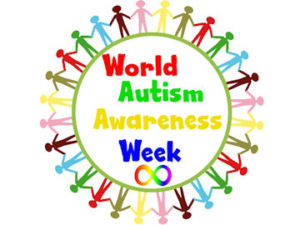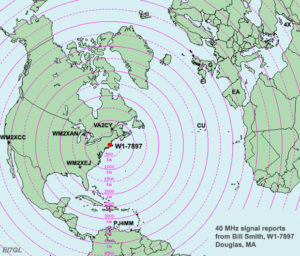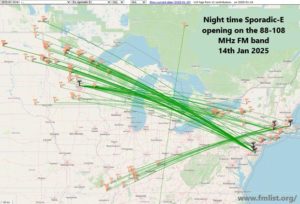12,000km+ opening on the 40 MHz band from California to Australia – 28th Dec 2022
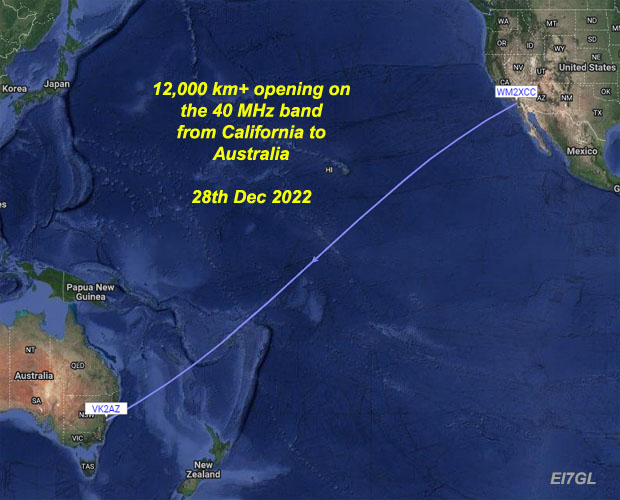
Following on from the report of a 12,000km+ opening from South Africa to the United States, here is another report of remarkable opening on the 40 MHz band from California to Australia.
On the 28th of December 2022, Hilary VK2AZ in Sydney, Australia managed to get two decodes of the WSPR signal from Chris, WM2XCC in California on the 40 MHz (8m) band. The distance was 12,156 kms.
2022-12-28 01:28 WM2XCC 40.681492 -22 0 DM13ji 50 VK2AZ QF56if 12156 242 2
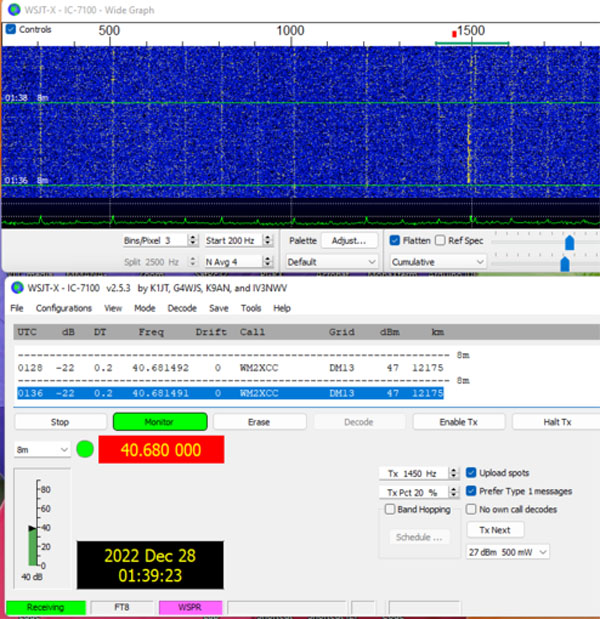 |
| Screenshot from VK2AZ |
WM2XCC is the experimental callsign allocated by the FCC to Chris, N3IZN. For his experimental 8m WSPR transmissions, he was using 50-watts to a half-wave vertical.
VK2AZ in Sydney was using a horizontal half-wave dipole in a very noisy suburban location.
Analysis… At 01:30 UTC, the sun would have been over the centre of the Pacific Ocean so it’s probably no great surprise that it happened at this time as the level of ionization would have been at maximum. With the solar flux now reaching 150-160, F2 trans-equatorial (north-south) paths up as high as 50 MHz are being reported recently.
In the last few weeks, there have been paths on the 50 MHz band from Australia & New Zealand to the western half of the United States. As 40 MHz is a lower band, it was likely that the path was open as well recently but this is the first time that an 8m signal across the Pacific has been reported.
In terms of propagation and potential paths, the 40 MHz band will never be as good as the 28 MHz band but it should always be better than 50 MHz. The reason it isn’t obvious is just a lack of activity and reports.
Link…
1) For more info on the 8m band, visit my 40 MHz page.
If you have found a spelling error, please, notify us by selecting that text and pressing Ctrl+Enter.

